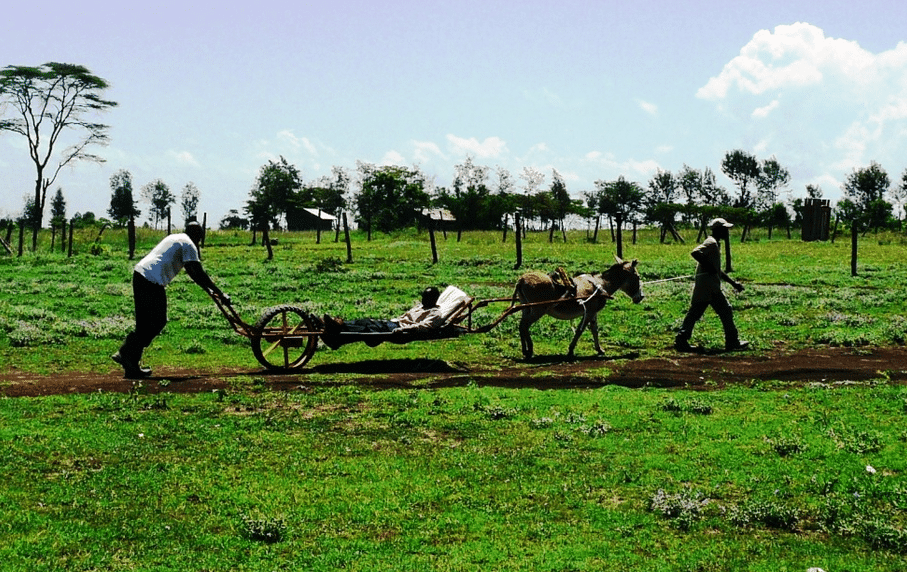A do-it-yourself facemask built around an air conditioner filter has been tested at more than 96 percent filtration efficiency. Tommye Austin, Chief Nurse Executive at University Health System in San Antonio, Texas (USA), developed the mask in response to warnings about shortages of personal protective equipment during the COVID-19 pandemic.
“I just want my staff to be safe and I want anyone who is taking care of these patients to be safe,” Ms. Austin said in a comment published on the medical center’s website.
“Our nurses were up in arms. And I was alarmed as well,” – Chief Nurse Executive Tommye Austin
Ms. Austin began prototyping the homemade mask after the US Centers for Disease Control recommended that healthcare workers caring for COVID-19 patients wear bandanas or scarves over their faces. Healthcare workers were forced to improvise when the nation’s supplies of N95 facemasks, the gold standard for limiting the spread of infectious disease, were nearly exhausted.
“Our nurses were up in arms. And I was alarmed as well,” Ms. Austin says.
She bought off-the-shelf air conditioner filters from a hardware store, cut them to size and enveloped them in surgical draping. She then added a bendable metal strip to fit over the bridge of the nose. After experimenting with a couple dozen designs, Ms. Austin sent a subset of mask prototypes to a local laboratory for filtration testing. The lab, the research and design non-profit Southwest Research Institute, offered its filtration test services that are typically reserved for auto emissions testing.
“As a public service, we offered to do some of the testing for them. Nurse Austin was concerned that if they run out of N95s, was there a substitute they could use,” Tim Martin, the Chief Public Information Officer at the institute, told Engineering for Change.
Tests pegged the masks’ filtration efficiency at 96.5 percent. Mr. Martin described the test procedure in an email.
“SwRI uses sodium chloride particle size distribution with a Count Median Diameter (CMD) of 75 nm and Geometric Standard Deviation (GSD) of less than 1.86 for masks filtration testing. This size distribution is similar to that used by NIOSH, as required in 42 CFR Part 84. The filtration efficiency is measured using a 47 mm mask filter with a filter face velocity that simulates a flow rate of 85 liter per minute used by NIOSH on full size N95 masks. SwRI is an ISO 17025 accredited laboratory by the American Association for Laboratory Accreditation (A2LA) (see website below) for the equipment used to quantify the size distribution and the number concentration used upstream and downstream of the masks to determine filtration efficiency.”
More information is available on SxRI’s website: SwRI Particle Emissions Laboratory Gets Calibration Accredition
Take care in interpreting 96.5%
It’s important to note that the particulate test was applied to the materials in the mask, not the mask’s efficacy when worn on a face. The masks’ fit on each face will play an important role in their efficacy, Mr. Martin says, and that was not tested. Further, neither SwRI or University Health System guarantee the masks’ efficacy.
Please note, also, that while these masks appear to be quite effective, they are not meant as replacements for N95 masks when those are available. N95 masks adhere to the face with suction, creating a seal that prevents many airborne particles from entering around the edges. N95s should be reserved for healthcare professionals working with infectious patients. Ms. Austin’s mask design could be employed as tested and effective for the general public, and for healthcare workers who do not have alternatives.
How to make Chief Nurse Austin’s facemask
University Health System has shared Ms. Austin’s facemask design and how-to guide. The mask should be used non-commercially, and the medical center cannot ensure that using this design will result in a mask that is as efficient as Ms. Austin’s.
Here’s how Ms. Austin sourced materials, developed her design and verified her mask’s effectiveness. https://www.surveymonkey.com/r/TM-2020

